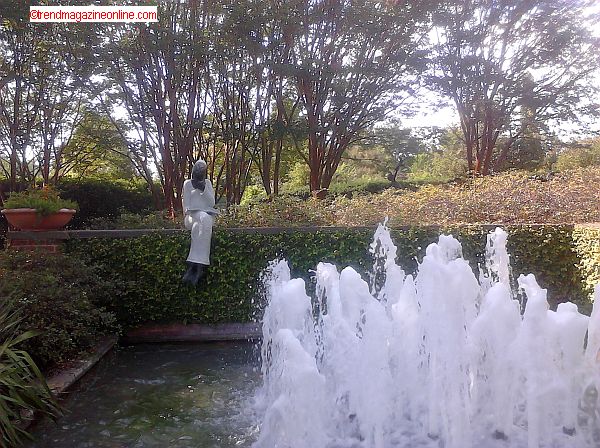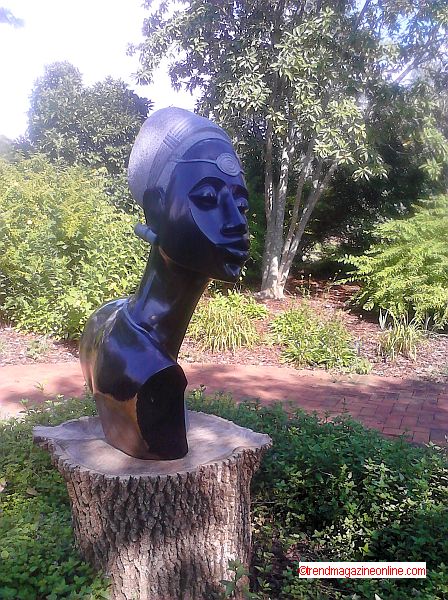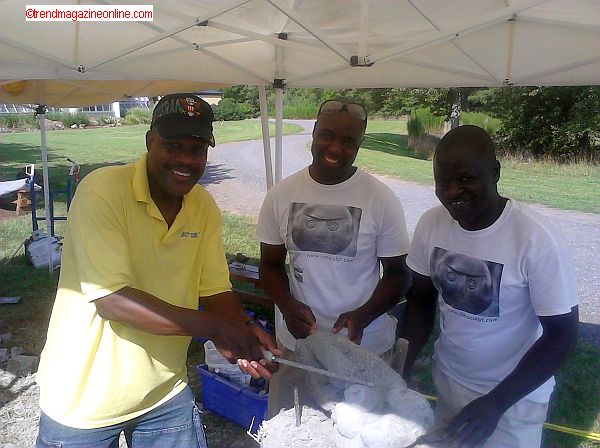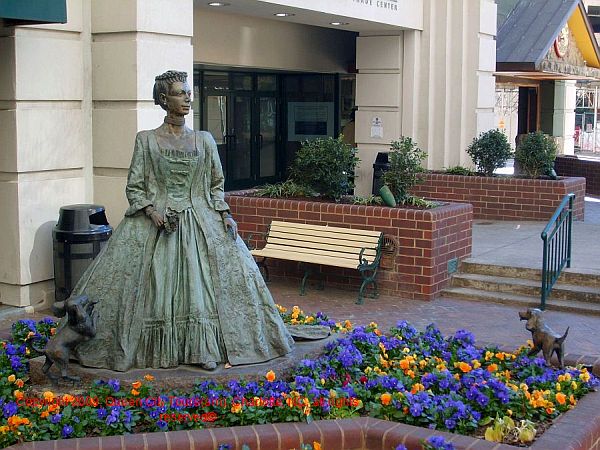Jay -- What was you and your wife’s motivation for starting this
type company?
Mr. Croisette -- At the London exhibit in 2000 my wife saw art that she had never seen before. The quality was fantastic. She then decided to go to Zimbabwe to see the artist and she never came back.
Jay -- How did the two of you meet?
Mr. Croisette -- We met in Zimbabwe in 2003 and decided to work together. Today we are a family business and the last art dealers living in Zimbabwe.
Mr. Croisette -- At the London exhibit in 2000 my wife saw art that she had never seen before. The quality was fantastic. She then decided to go to Zimbabwe to see the artist and she never came back.
Jay -- How did the two of you meet?
Mr. Croisette -- We met in Zimbabwe in 2003 and decided to work together. Today we are a family business and the last art dealers living in Zimbabwe.

Jay -- How do the two of you make your business work?
Mr. Croisette -- During six to seven months we buy around 2,000 sculptures for the year and probably sell the same amount all around the world. The dollars we make we use straight away to buy more sculptures.
Jay -- How is the market for sculptures in Zimbabwe?
Mr. Croisette -- Since 2000 with the political situation there is no tourist, no potential buyers; so we have to travel to show the work.
Mr. Croisette -- During six to seven months we buy around 2,000 sculptures for the year and probably sell the same amount all around the world. The dollars we make we use straight away to buy more sculptures.
Jay -- How is the market for sculptures in Zimbabwe?
Mr. Croisette -- Since 2000 with the political situation there is no tourist, no potential buyers; so we have to travel to show the work.
Jay -- How do you transport your art?
Mr. Croisette -- We use three to four different containers of sculptures weighing several tons.
Jay -- Do you get nervous during the shipping process?
Mr. Croisette -- What do you think? We are always nervous until the containers are in the garden where we have the exhibition. It is always stressful.
Mr. Croisette -- We use three to four different containers of sculptures weighing several tons.
Jay -- Do you get nervous during the shipping process?
Mr. Croisette -- What do you think? We are always nervous until the containers are in the garden where we have the exhibition. It is always stressful.

Jay -- What is Tengenenge?
Mr. Croisette -- Tengenenge is an art movement that started in 1957 when Zimbabwe was Rhodesia. About 40 artists started the movement. We call them the 1st generation [70+ years old]. Today, we are in the 4th generation [20+ years old] of artist. [2nd generation, 50+, 3rd generation, 30+].
Jay -- What is the age range of the 200 artists that you represent?
Mr. Croisette -- The youngest is 16 and the oldest is 100 years old and still carving. He is from Tengenenge.
Jay -- What is the Tengenenge community?
Mr. Croisette -- Tengenenge is an art community that started in 1966 and is still active. We are part of the collectors; it is one of the most famous art communities in the world. Most 1st generation masters come from this community. It is a family tradition; the kids come around seven or eight years old after school. Each family has a master; each kid studies under the master. Their skill is a gift.
Mr. Croisette -- Tengenenge is an art movement that started in 1957 when Zimbabwe was Rhodesia. About 40 artists started the movement. We call them the 1st generation [70+ years old]. Today, we are in the 4th generation [20+ years old] of artist. [2nd generation, 50+, 3rd generation, 30+].
Jay -- What is the age range of the 200 artists that you represent?
Mr. Croisette -- The youngest is 16 and the oldest is 100 years old and still carving. He is from Tengenenge.
Jay -- What is the Tengenenge community?
Mr. Croisette -- Tengenenge is an art community that started in 1966 and is still active. We are part of the collectors; it is one of the most famous art communities in the world. Most 1st generation masters come from this community. It is a family tradition; the kids come around seven or eight years old after school. Each family has a master; each kid studies under the master. Their skill is a gift.








